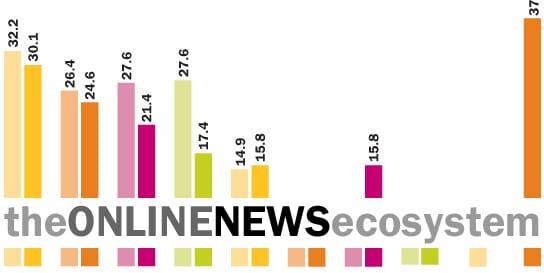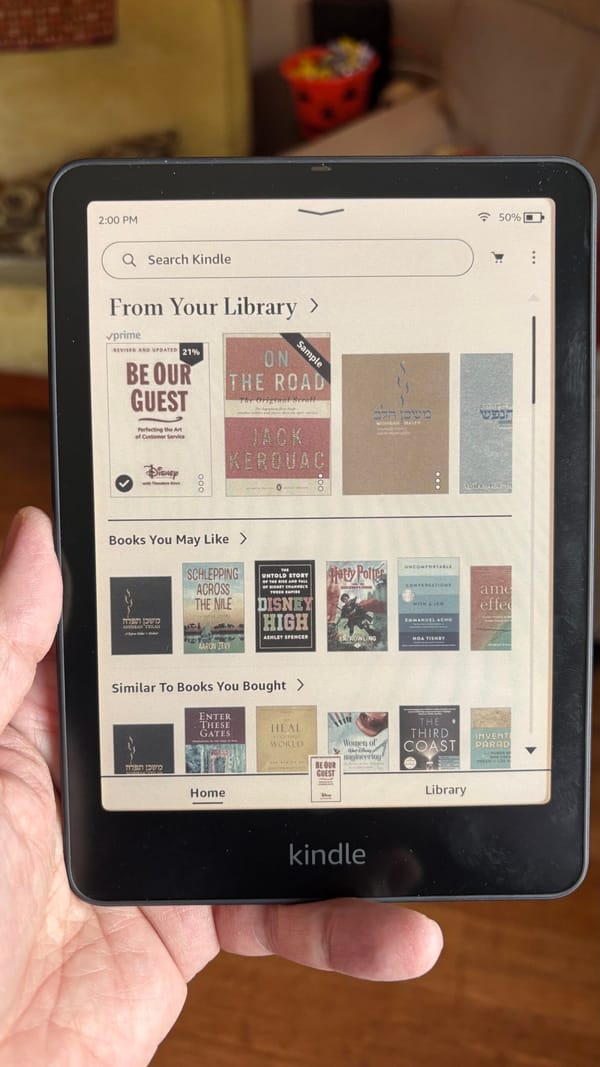Blogging Beyond the Bread Line
Another year, another potentially generic Chicago community news conference. But at this year's convening, Community Media Workshop and Growth Spur CEO Mark Potts put forward a couple of cogent calls to action for Windy City funders and bloggers alike, to stop talking and start getting things done.

Another year, another Chicago new-media conference. On September 23-24, Chicago hosted the multiply sponsored, two-day Block By Block: Community News Summit 2010. Or was it two conferences? The first day, monickered Advancing Chicago's News Ecosystem (yet also referred to as Community News Matters 2010) was also promoted as a stand-alone event. Actual good came out of the conference(s) and I want to talk about that, so let me get some constructive criticism out of the way first.
If you find the above conference branding/naming confusing, so do I. This was, in fact (according to sponsor Reynolds Journalism Institute, anyway), one conference, dealing with issues of import to the same media community. However, lack of clarity about the conference's two-day nature in marketing materials promulgated by some of the conferences six sponsors and the fact that not all invitees were invited to both days of the conference had an unfortunate balkanizing effect both on discussion and on the dissemination of information relevant to Chicago's online news community as a whole.
Next time (and since media conferences pop up like weeds in this town, you know there will be a next time), it behooves conference sponsors and organizers to stay on the same page, speak with one voice, promulgate crystal-clear marketing messages, and invite everyone to the table together. Community members have a right to decide what tables they want to sit at without others, no matter how well-meaning, deciding for them. For the record, the sponsors--and I do believe they were well-meaning--were the Reynolds Journalism Institute (who I think was the lead sponsor), the Patterson Foundation, the Knight Foundation, the Knight Media Foundation, the Chicago Community Trust, and Loyola University. (I'd provide links here, but the conference's own website didn't bother to link sponsor names to all-important corporate homepages, so why should I knock myself out if they didn't bother to?)
That said, the conference/summit/event (really, clear branding matters!) was among the strongest efforts I've seen in the past couple of years to try and foster dialogue on ways to help keep the telling of local stories alive on the Internet, and to explore ways for community bloggers to establish revenue streams. Work done or sponsored by both the Chicago Community Trust and Chicago's Community Media Workshop really shined on day one. (Previous, somewhat unfair criticism aside, I like them both; they get links.)
Trust-sponsored work led by Medill's Rich Gordon (Linking Audiences to News--PDF) explored how and how well Chicago's online community is interlinked, with local community-news sites Gapers Block and Windy Citizen emerging as clearly important anchors. Other key anchors turned out to be governmental sites like CTA and Metra, as well as what's-on listings sites. That prompted me to ask whether actual viewership would be taken into account in a later round of analysis, since obviously people visit sites like Gapers Block and Windy Citizen because they want to, but only check CTA or listings info because they have a one-time need to. The answer was a sheepish, "We know, we know," from Gordon et al, but this work was a good first step. Hopefully they'll go deeper.
The Trust, itself, released the results on an analysis of Chicago's online news "ecosystem" (News That Matters--a Powerpoint file, but really guys, this should be a universally accessible PDF.) Their most surprising findings? At most, only 11% of people consider online sources as their "most important" news sources, about 40% of people consider TV their prime news source, and another 40% consider radio their prime news source. So while the printed word continues to decline, it isn't as if the slack is being directly taken up by the online word. (Hence the point of "How do we save community news"--as in readable news--conferences in the first place.)
The Trust also noted that those whose voices need to be included in community news debates the most--low-income and non-English-speaking Chicagoans--tend to be those with the least access to the Internet. Some see that as the reason why this city doesn't yet have a "Latino Gapers Block." Personally, I think that time has come (someone is going to make a big name for themselves by creating one, just wait.) I'm tired of attending conferences that demonstrate how popular multi-category websites are for middle-class folks, but then proceed to dote on trying to shove naked news at low-income folks. I assure everyone reading this, low-income folks like restaurant reviews, fashion columns, and gossip just like everyone else. The lack of such "soft" content in pilot online community news projects offered to Chicago's challenged neighborhoods could be a reason why such pilots have such a hard time getting off the ground and finding readership. People are people. I'm just sayin'.
However, the real stars of day one were the reports discussed by Community Media Workshop. First up were the findings of their second annual New News report (released in mid-summer), which polled and analyzed local bloggers and online community news providers to get a sense of the needs of the community. It came as no surprise that most online newsies make little or no money from the effort, nor that some politically connected neighborhoods on the far northwest and southwest sides have few outspoken online news sites. (See multimedia report goodness on The New News 2010 website.)
Really helpful, though, were the recommendations stemming from the report, released at Block by Block as a separate report, Realizing Potential (PDF). In it, the Workshop set out concrete suggestions for foundations to help make the online dissemination of community news a practically and financially worthwhile endeavor. They include:
- Helping online communities create ad networks;
- Helping online editors learn how to communicate metrics and market their sites to advertisers;
- Supporting community networking opportunities and opportunities for websites to network with foundations and other funders; and
- Creating "one-stop-shop" technical assistance and guidance resources.
Together, Chicago foundations and the online community are getting really good at the networking bit. But where's the ad network we've been talking about for more than a year now? (In August 2009, I did my part to help move that debate along by convening--with material support from the Chicago Tribune--C-BOM, a community blogging and online media discussion day attended by our community's usual suspects in the basement of Trib Tower, so I'm glad we're all still talking about that mythical ad network.)
That question came to a head on day two, the "national day" of the Block by Block conference. The star of the day was supposed to be hyper-popular national media critic Jay Rosen. But the important words actually came from GrowthSpur ad-sales network CEO Mark Potts, who, in the words of Welles Park Bulldog editor Patrick Boylan, essentially said to those present, "You're all nuts."
Amidst much anointing of Patch.com and Groupon as the greatest Internet threats since rickrolling (why did we refuse to see print-media failure for years but are willing to bandwagon behind mere months of online success?), Potts said the only way to start an ad network...is to stop talking about it and just start one already. He underscored that data show few local businesses buy ads from individual local sites, and few regular readers are willing to pay for firewalled subscriber content. Most importantly, though, he noted that examples already exist for successful local ad networks--namely GrowthSpur--and that there's no reason to try and-reinvent the wheel.
So let's stop trying to. Would Chicago's rank-and-file community bloggers be willing to organize around an "off-the-shelf" ad network scheme? Maybe it's time we found out.




